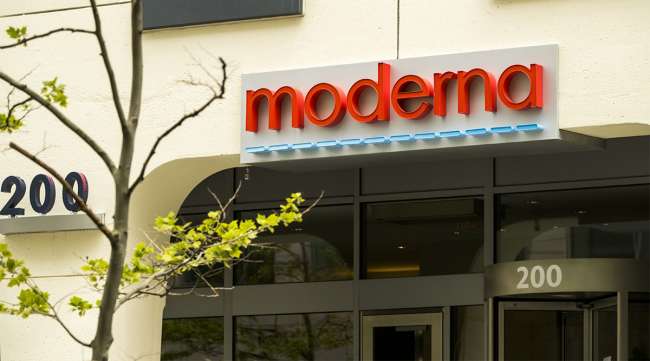Bloomberg News
FDA Advisers Back Authorization of Moderna’s COVID Vaccine

[Ensure you have all the info you need in these unprecedented times. Subscribe now.]
Moderna Inc.’s COVID-19 vaccine won backing from a panel of experts who advise U.S. regulators, setting the stage for its shot to be the second vaccine cleared in the U.S. in as many weeks.
Food and Drug Administration advisers voted 20-0, with one abstention, on Dec. 17 that the benefits of the vaccine outweigh any risk, giving a boost to efforts to ramp up the U.S. immunization campaign. The effort is initially focusing on health-care workers and seniors who live in long-term care facilities. The FDA could authorize the shot Dec. 18.
Moderna will count on health care distribution giant McKesson to move the vaccine from production sites to injection sites. Moderna’s product is based on the same technology as a shot made by Pfizer Inc. and BioNTech SE that was cleared by the FDA last week, and like that vaccine showed a high degree of efficacy in late-stage clinical trials. At the Dec. 17 advisory meeting, some of the discussion focused on a handful of allergic reactions experienced by people in the U.S. and United Kingdom who got the Pfizer shot.
In a report ahead of the meeting, FDA staff determined Moderna’s vaccine is 94.1% effective against symptomatic COVID-19. The report listed side effects like headache, fatigue and muscle aches typical of a vaccine.
Side effects seen in the rollout of the shot from Pfizer and BioNTech are leading U.S. regulators to bolster instructions for doctors and those that receive the shot. Pfizer and the U.S. Food and Drug Administration are revising fact sheets handed out with the vaccine, Doran Fink, deputy director of FDA’s division of vaccines and related products applications, said in the advisory panel meeting.
The revisions reflect guidelines from the Centers for Disease Control and Prevention to monitor patients and ensure facilities have medication on hand to treat rare, but serious, allergic reactions. Two people in Alaska who received the Pfizer-BioNTech vaccine suffered reactions, which have also been seen in a few U.K. vaccine recipients.
“As we continue to evaluate and investigate the data, we will determine whether additional recommendations need to be made,” Fink said in the online panel meeting.
U.K. health officials have warned anyone who has a history of anaphylactic reactions to food, medicine or a vaccine shouldn’t get the Pfizer shot. The FDA hasn’t taken such a step, but told facilities where the vaccine would be administered to have medication on hand to treat possible allergic reactions.
Moderna’s vaccine isn’t yet approved in any other countries and hasn’t yet been used on anyone outside of a clinical trial. But like Pfizer and BioNTech, the company didn’t report any serious allergic reactions in its research. Both the Moderna and Pfizer products are based on messenger RNA technology that hasn’t been previously used in human vaccines. Both are two-dose vaccines.
Once the U.S. grants authorization for Moderna’s vaccine, advisers to the CDC must meet, as they did last week on Pfizer’s, to give Moderna’s shot the green light and provide specific recommendations for use and monitoring.
Health and Human Services Secretary Alex Azar said Dec. 16 that 5.9 million doses of Moderna’s vaccine would be sent out nationwide very soon after the FDA’s authorization. In the last week, 2.9 million doses of Pfizer and BioNTech’s shot were distributed and another 2 million are expected next week, Azar said.
Between Pfizer and Moderna, up to 20 million people in the U.S. are expected to get their first shots by the end of 2020. The government is holding vaccines in reserve to ensure those people get their second dose.
The companies will need to file for full FDA approval once they have assessed clinical trial participants for longer than the two months of follow-up they compiled for emergency authorization. Pfizer expects to file for full approval in April.
Jeannie Baumann contributed to this report.
Want more news? Listen to today's daily briefing:
Subscribe: Apple Podcasts | Spotify | Amazon Alexa | Google Assistant | More




